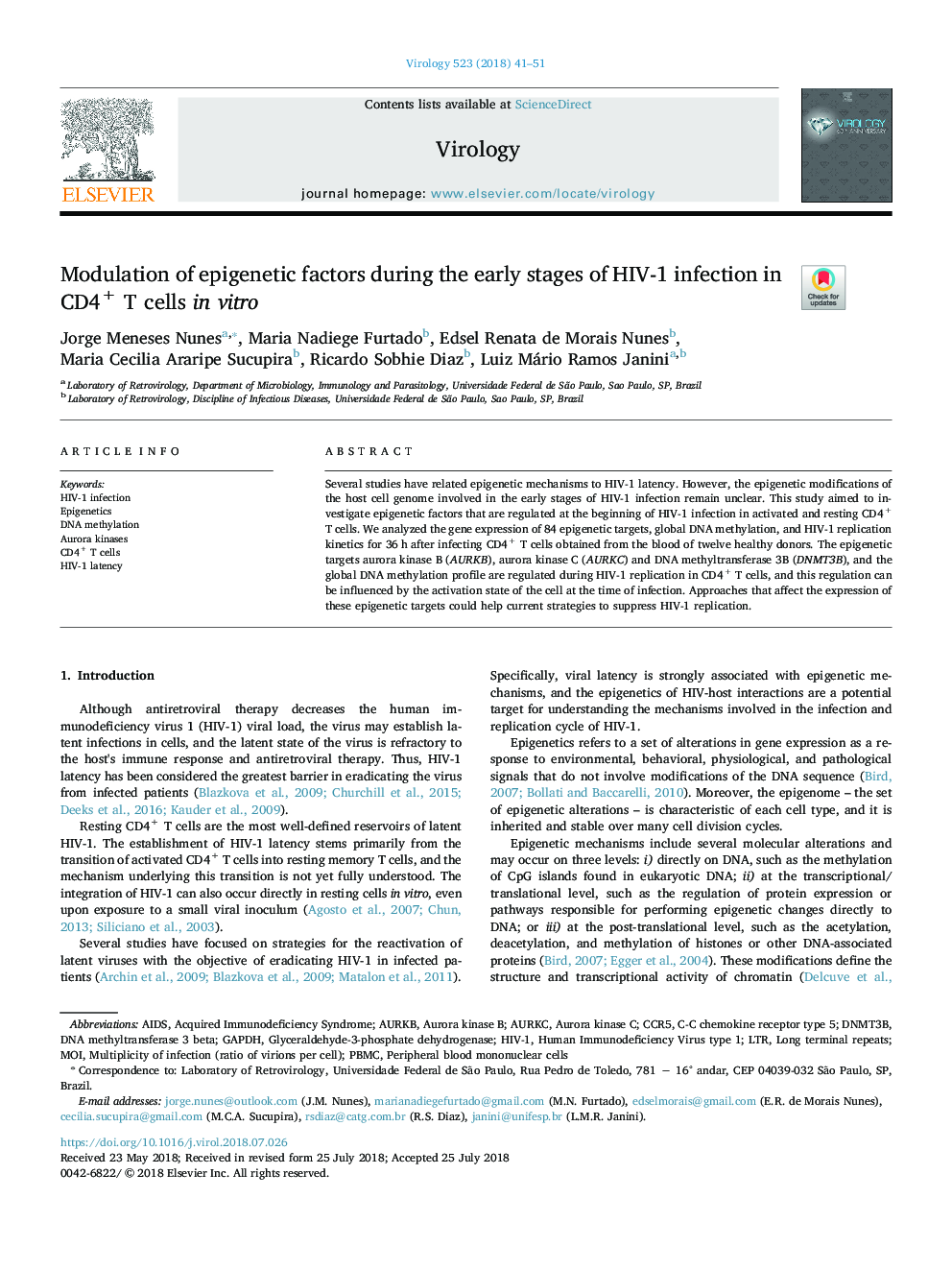| Article ID | Journal | Published Year | Pages | File Type |
|---|---|---|---|---|
| 8751317 | Virology | 2018 | 11 Pages |
Abstract
Several studies have related epigenetic mechanisms to HIV-1 latency. However, the epigenetic modifications of the host cell genome involved in the early stages of HIV-1 infection remain unclear. This study aimed to investigate epigenetic factors that are regulated at the beginning of HIV-1 infection in activated and resting CD4+ T cells. We analyzed the gene expression of 84 epigenetic targets, global DNA methylation, and HIV-1 replication kinetics for 36â¯h after infecting CD4+ T cells obtained from the blood of twelve healthy donors. The epigenetic targets aurora kinase B (AURKB), aurora kinase C (AURKC) and DNA methyltransferase 3B (DNMT3B), and the global DNA methylation profile are regulated during HIV-1 replication in CD4+ T cells, and this regulation can be influenced by the activation state of the cell at the time of infection. Approaches that affect the expression of these epigenetic targets could help current strategies to suppress HIV-1 replication.
Keywords
DNMT3BC-C chemokine receptor type 5Aurora kinase BAURKBLTRCCR5GAPDHPBMCMOIEpigeneticsAIDSHIV-1 latencyLong terminal repeatsperipheral blood mononuclear cellsCD4+ T cellsacquired immunodeficiency syndromeHIV-1 infectionDNA methylationHIV-1Human immunodeficiency virus type 1Aurora kinasesglyceraldehyde-3-phosphate dehydrogenase
Related Topics
Life Sciences
Immunology and Microbiology
Virology
Authors
Jorge Meneses Nunes, Maria Nadiege Furtado, Edsel Renata de Morais Nunes, Maria Cecilia Araripe Sucupira, Ricardo Sobhie Diaz, Luiz Mário Ramos Janini,
